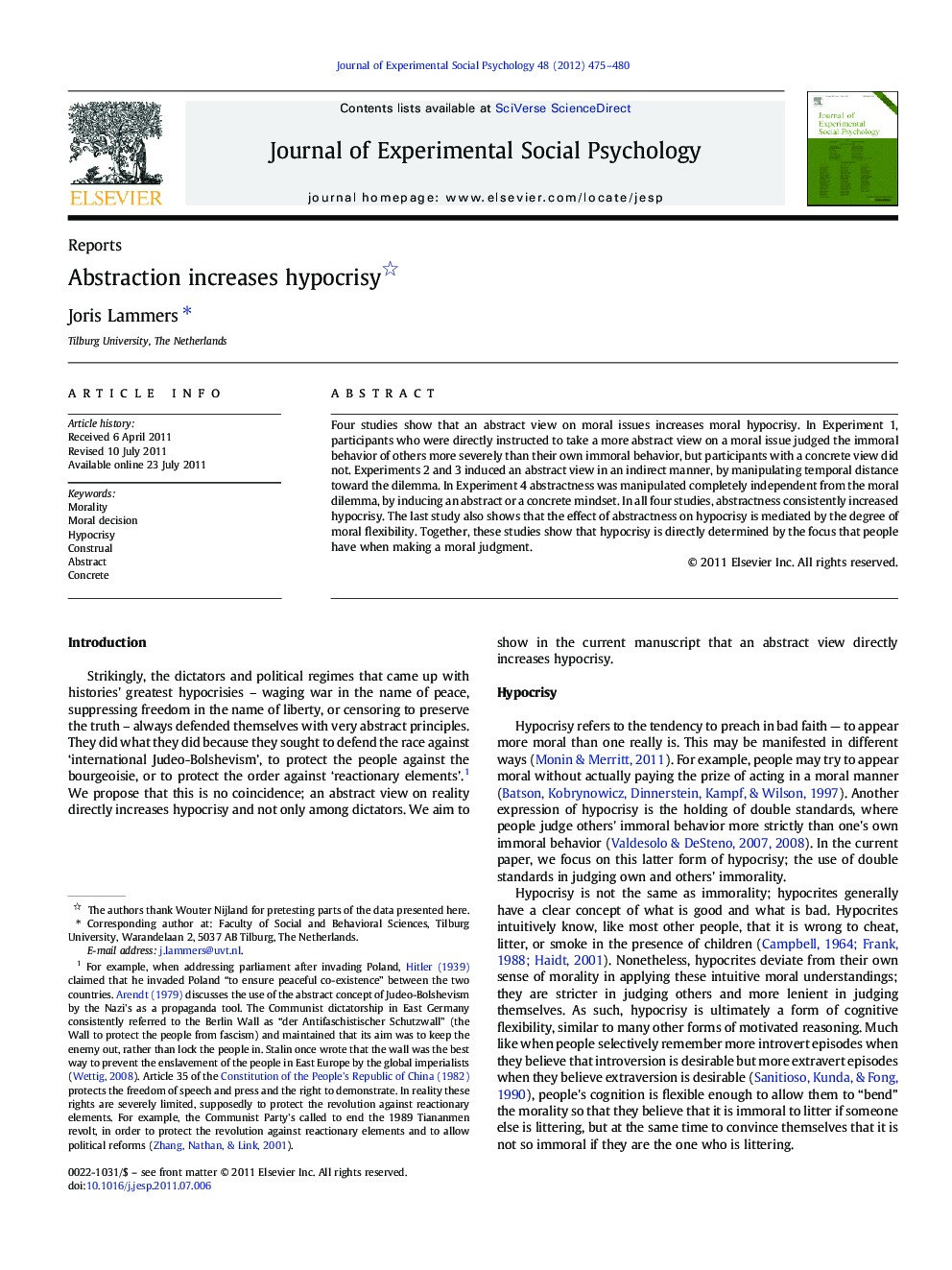| Article ID | Journal | Published Year | Pages | File Type |
|---|---|---|---|---|
| 948507 | Journal of Experimental Social Psychology | 2012 | 6 Pages |
Four studies show that an abstract view on moral issues increases moral hypocrisy. In Experiment 1, participants who were directly instructed to take a more abstract view on a moral issue judged the immoral behavior of others more severely than their own immoral behavior, but participants with a concrete view did not. Experiments 2 and 3 induced an abstract view in an indirect manner, by manipulating temporal distance toward the dilemma. In Experiment 4 abstractness was manipulated completely independent from the moral dilemma, by inducing an abstract or a concrete mindset. In all four studies, abstractness consistently increased hypocrisy. The last study also shows that the effect of abstractness on hypocrisy is mediated by the degree of moral flexibility. Together, these studies show that hypocrisy is directly determined by the focus that people have when making a moral judgment.
►Hypocrisy is when people judge the immoral actions of others stricter than their own. ►We show that if people have an abstract focus, this tendency grows stronger. ►In four studies, they consistently judged others more harshly than themselves. ►This demonstrates that how we look at dilemmas affects the degree of hypocrisy. ►An abstract morality is not an elevated morality — quite the contrary.
